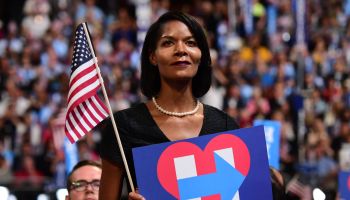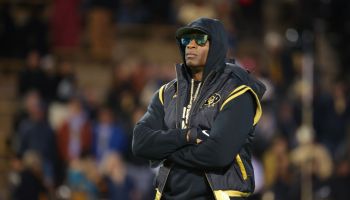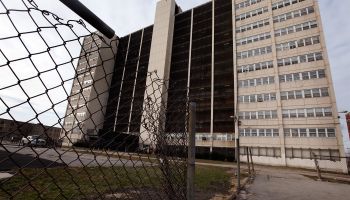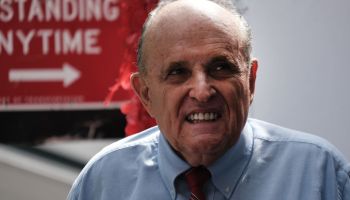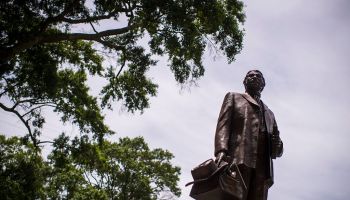While Hillary Clinton prepares to accept a historic nomination as the first women presidential candidate of a major party – a move that will shatter the proverbial glass ceiling – the diversity of the women at the helm of the Democratic National Convention cannot be ignored.
Women of color have not only graced the stage in primetime speaking slots during this week’s event, they are also running the show. From Democratic strategist Donna Brazile serving as interim chairman of the Democratic National Committee after the email flap that caused Debbie Wasserman Schultz’s resignation, to Rep. Marcia Fudge (D-Ohio) serving as convention chairman, and Washington D.C. Rev. Leah Daughtry, who has twice served as CEO of the convention, it’s clear who has been entrusted to save the day.
For Clinton’s camp – who also brought out the mothers of slain Black men, women, and children who were killed during police encounters or by gun violence – that representation is intentional and critical to the Black voter bloc who largely determined the last two elections.
But while that representation may be refreshing for Black voters who feel skeptical about Clinton’s outreach, it’s not enough considering the historical context of America and the Democratic Party.
The visibility of Black women is “important, it’s crucial, it’s insufficient,” writer, commentator, and Maya Angelou Presidential Chair at Wake Forest University, Melissa Harris-Perry, told NewsOne in this exclusive interview.
“When I think ‘what does Black representation mean,’ it means both that that’s not where we began, but that we are in a place that is better,” Harris-Perry said. “But at any moment, we may not be there anymore.”
The Party’s lack of inclusion in the past is not lost on Harris-Perry, who spoke to Daughtry earlier in the week in an emotional interview about Fannie Lou Hamer, the voting rights activist who served as vice-chair of the Mississippi Freedom Democratic Party and who is largely credited for her role of breaking through a whitewashed wall when she represented the Party at the 1964 DNC. In 1972, Hamer was elected as a national party delegate.
The Sunday night before the convention starts, Daughtry “walks around the empty convention hall communing with the spirit of Hamer, who she sees as the person who really broke open the convention and broke open the Democratic Party,” Harris-Perry said.
“You have to keep invoking the spirit of Hamer, because the Democratic Party has to be reminded that it wasn’t always an inclusive party.”
In part, she said, that’s why First Lady Michelle Obama’s rousing speech on the first night of the convention was so important for America – for representation, but also for context.
“We are a great country, but we are one that had to grow into its greatness” she said. “When [Michelle Obama] says, ‘I wake in a house that was built by enslaved peoples,’ it’s a very Obama statement; it’s one that both reflects a recognition of how ugly a history we come from, but also how important the arc of that history is.”
“That where we began is not where we are now.”
You can watch the full interview in the video above.
PHOTO CREDIT: Getty
SEE ALSO:
He’s With Her: President Obama Endorses Hillary In Rousing DNC Speech
Cory Booker On Critics Of His DNC Speech: ‘That’s A Call We Need Now’
